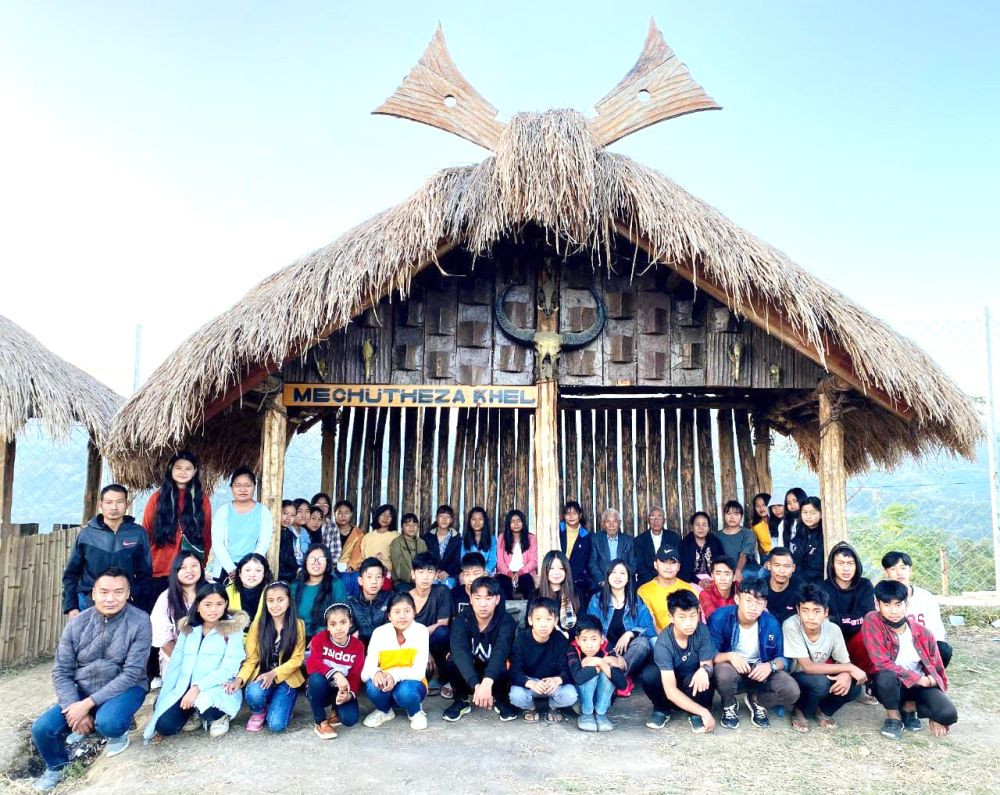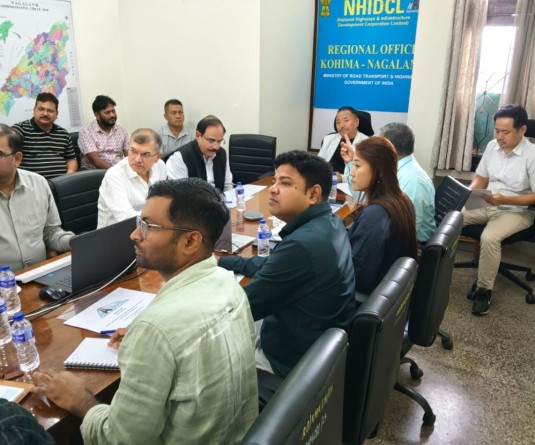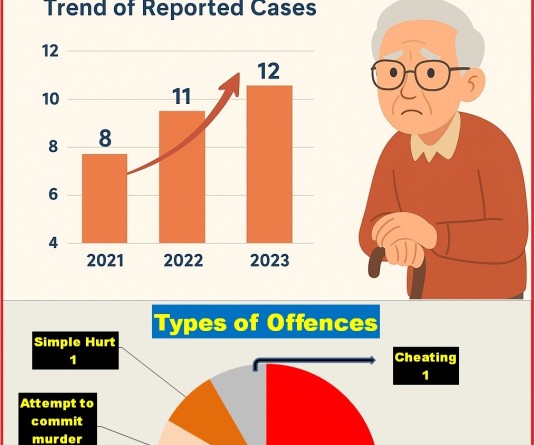Elders, CSU officials with participants of ‘Mapumo Seta’ on November 20 at Chizami.

Initiative to bridge inter-generational knowledge gaps between elder and younger generations
Kohima, November 21 (MExN): Chizami Students’ Union (CSU) has conducted Mapumo Seta (Morung Conversations), an initiative to bridge inter-generational knowledge gaps between the elder and younger generations on November 20 last at Chizami under Phek district.
This programme was part of the 75th anniversary celebration of CSU under the theme 'Educate, Empower, Inspire'.
The ‘Mapumo’ or Morung, a traditional institute of learning and education, was an indispensible part of the Naga way of life prior to the arrival of the British administration and Christian missionaries.
It played a major role in educating the past Naga society of its rich value system, wisdom and knowledge that were passed on from one generation to another.
The rich oral folklores, songs and games, traditional knowledge and wisdom on agriculture, handicrafts, social etiquettes, leadership and many others were taught and handed down to the younger generation through this institution.
However, with the advent of Christianity and the giving up of the old ways, the institution of Morung went out of sync with modernity, leading to the complete abandonment of its practice.
With the old indigenous values under threat, there is an urgent need to protect and preserve them before they are lost completely with the passage of time. With this sense of preservation in mind, the Mapumo Seta is aimed at reviving the age old practice of learning from the elders of the community about the varied traditional value systems, knowledge and wisdom which has sustained our people through the ages.
It is an interactive platform where modern education meets traditional knowledge systems.
The resource persons for the programme were indigenous community knowledge holders of the village who shared their own stories and recounts of the past.
They highlighted the importance of Morung as an institution and of traditional farming system; importance of agriculture as a means of food sustenance and food security and traditional seed keeping systems.
Kelhizulo Mero, a former teacher and local historian, emphasized the importance and makeup of the Morung as a medium of learning for the young in the past.
He shared that in the old days, a well-structured and well-designed system exist that ensured the transmission of knowledge, skills, values and etiquettes to the younger generation alongside the culture of respect and coexistence as a community.
Diligence and hard work, respect and integrity which he considered were the rich values of the ancestors.
Khenemvu L Mero, another indigenous knowledge holder stressed on the importance of the practice of agriculture and its sustenance.
He opined that the village is blessed with a land that is favourable for different types of cropping and for which people must utilise the land with ‘diligence and hard work' which he consider values of the ancestors.
He further added that the knowledge and wisdom are required in farming too.
He stressed on the significance to value the traditional knowledge systems and that young people must learn apart from the formal education.
Edikhwe-u Wezah, a seed keeper encouraged young students to take keen interest at farming and seed keeping. While displaying some samples of seeds, she also shared about different traditional methods to preserve seeds.
The most common equipment to preserve seeds is local bamboo cups and gourd containers instead of plastic containers. She saves more than 50 varieties of seeds which she also shared with the community members.
She mentioned that the climate variability has impacted farmers’ productivity and yield particularly this year due to rise in temperature, delay in monsoon arrival and change in rainfall intensity.
Therefore, she emphasized on the importance of saving local traditional seeds instead of relying on the external market which is emerging in recent years.
She encouraged the young students to learn from their parents practically and be proud of their roots and heritage. This was stated in a release issued by Khrolhiweu Tsuhah (Awi), General Secretary, CSU.






